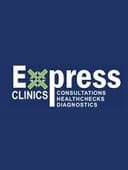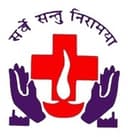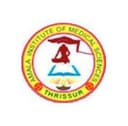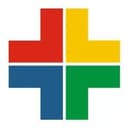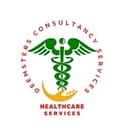Bachelor of Medicine and Bachelor of Surgery (MBBS)
OR
Prepared by Docthub Courses Team ∣
Last updated on 08 Jan 2026
Overview
MBBS stands for Bachelor of Medicine and Bachelor of Surgery, which is an undergraduate degree course in medical and surgical studies. This course helps students gain knowledge and skills to identify and treat various medical disorders through theoretical and practical studies. The course duration is 5.5 years, including 4.5 years of classroom learning and 1 year of compulsory internship.
To get admission to the MBBS course, a candidate must have scored at least 50% in their 10+2 examination with Mathematics, Biology, and Chemistry from a recognized board. The students also need to clear entrance exams like NEET UG, AIIMS MBBS, JIPMER, etc., depending on the requirements of the college.
MBBS syllabus and subjects include a theoretical and practical understanding of human anatomy, chemistry, pharmaceutical experience, etc. After completing the course, candidates become specialized doctors who can diagnose diseases, conduct surgeries, and prescribe medicines.
The average MBBS fees range from INR 10,000 to 15 LPA. In Latin, MBBS stands for Medicinae Baccalaureus Baccalaureus Chirurgiae; and it is the combination of two different degrees conferred into one. Pursuing an MBBS is an ideal option for those who aspire to become professional medical practitioners.

Table of Content
What is MBBS?
MBBS stands for Bachelor of Medicine and Bachelor of Surgery, which is a 5.5-year (4.5 years + 1 year Internship) undergraduate medical degree program. The course includes one year of internships in hospitals, health centers, and health camps organized by NGOs.
MBBS students learn about different subjects like anatomy, pharmacology, pathology, community health, pediatrics, and surgery. After completing the degree, they can choose a specialization for further practicing medicine such as Nephrology, Cardiology, Gynecology, Anesthesiology, Organ Transplant, Endocrine, and General Surgery.
MBBS graduates can work as doctors in public and private hospitals, military forces, and even on trains. To improve job opportunities, students can pursue postgraduate medical degrees like MD or continue with their MBBS degree. This course is offered only full-time and cannot be pursued in a part-time or diploma format due to its rigorous curriculum combining practical and theoretical lessons.
MBBS Course Details
| Course Name | Bachelor of Medicine and Bachelor of Surgery |
| Commonly known as | MBBS course |
| Course Level | Undergraduate |
| Course type | Degree program |
| Course duration | 5-year 6 months (4.5-year Theory and 1-year Rotatory Internship) |
| Minimum qualification | 10+2 Science with Physics, Chemistry, Biology (PCB) |
MBBS Eligibility Criteria
To apply for a Bachelor of Medicine and Bachelor of Surgery (MBBS) course, students need to fulfill certain eligibility criteria. These criteria include having a basic understanding of the course and meeting the necessary requirements, which are:
- General category students must score a minimum of 50% marks in their intermediate exams, although this may vary.
- Applicants should be at least 17 years old to register for the MBBS NEET exam.
- Students need to clear the medical entrance exam required for MBBS admission.
- Students must have completed their 10+2 education with Physics, Chemistry, and Biology as mandatory subjects.
- Reserved category candidates must have scored a minimum of 40% marks to be eligible.
- The maximum age limit for applying to the MBBS course is 25 years.
MBBS Course Duration
The duration of the Bachelor of Medicine, Bachelor of Surgery (MBBS) course in India is typically five and a half years. This includes four and a half years of academic study and one year of mandatory internship. The internship year is usually spent in a hospital or healthcare facility, where students gain practical experience in different areas of medicine.
MBBS Course Fees
The course fees for Bachelor of Medicine, and Bachelor of Surgery (MBBS) in India can vary depending on the institution and can range from approximately Rs. 50,000 to Rs. 25 lakhs for the entire program.
Who should do MBBS?
Students who aspire to become a doctors and have an interest in pursuing a career in the medical field should choose MBBS.
Here are some other factors to consider:
- The course is ideal for those who have a genuine interest in the medical field and are passionate about becoming a doctor.
- Students who have a strong desire to help others and make a positive impact on people’s health and well-being can pursue this course.
- Having a solid academic background in science and mathematics is also a crucial aspect to consider before pursuing an MBBS.
Why study MBBS?
Bachelor of Dental Surgery or BDS is becoming a popular course among students in India. Here are some reasons:
- Increased demand for dental care: With increased awareness about oral hygiene, more people are seeking dental care. To become a dentist in India, one must have a BDS degree, as it is mandatory to practice dentistry after completing the course.
- Better employment opportunities: Due to the growing demand for dental care, the government is aiming to provide more job opportunities for dentists. This means that students who complete a BDS degree can expect better career prospects.
- Paid internships: During their internships, BDS students can earn a good amount of money ranging from INR 15,000 to INR 40,000 (approx.), depending on their level of expertise and experience.
- Global opportunities: BDS graduates can practice their skills in countries like the US and Canada, where they can earn a higher income compared to what they would earn in India. However, they need to clear exams like NBDE or NDEB to practice in these countries.
MBBS Entrance Exam
To pursue an MBBS in India, clearing the National Eligibility and Entrance Test (NEET) is mandatory for all medical aspirants.
The National Testing Agency (NTA) conducts the exam and tests students' knowledge in physics, chemistry, and biology through multiple-choice questions. NEET scores determine a student’s eligibility for admission to various medical colleges offering MBBS programs across the country.
Although NEET is the primary entrance exam for MBBS admission in India, some state-level and private medical institutions conduct their own entrance exams. These include
| Entrance Exam Name | Conducted by |
| AIIMS MBBS Entrance Exam | All India Institue of Medical Sciences |
| JIPMER MBBS Entrance Exam | Jawaharlal Institute of Postgraduate Medical Education and Research |
| CMC Vellore MBBS Entrance Exam | Christian Medical College, Vellore |
It's important to note that these exams are relatively fewer in number compared to NEET and usually cater to a limited number of seats in specific institutions.
MBBS Admission Process
The process of getting admission into Bachelor of Medicine and Bachelor of Surgery (MBBS) varies across countries, but typically involves the following steps:
- Eligibility Criteria: Check if you meet the minimum age, academic qualifications, and entrance exam score requirements for admission to MBBS.
- Entrance Exam: Most countries require candidates to take an entrance exam, such as NEET in India to qualify for admission.
- Application: Once you clear the entrance exam, apply to the colleges or universities where you want to study MBBS. This involves filling out an online application form, submitting relevant documents, and paying an application fee.
- Counseling: After completing the application process, you will be called for counseling, where you will be allotted a seat in a college/university based on your rank, preference, and availability of seats.
- Admission: Finally, complete the admission process by submitting the necessary documents, paying the tuition fees, and fulfilling, any other formalities.
It is important to note that the admission process for MBBS may vary based on the country and the college/university you're applying to. Therefore, check the specific admission guidelines of the college/university you wish to apply to.
MBBS Syllabus
and The MBBS syllabus covers theoretical and practical knowledge in various medical fields such as Anatomy, Biochemistry, Physiology, Pharmacology, and more.
The syllabus has three parts: Pre-Clinical, Para-Clinical, and Clinical.
The course lasts for 5 years and 6 months, including a one-year internship.
The first year has 3 subjects; the second year has 7 subjects; the third year has 3 subjects, and the final year has 6 subjects. In total, there are 19 subjects. The course covers a wide range of medical topics, including community medicine, dermatology, surgery, and orthopedics.
MBBS 1st year Subjects:
| MBBS Subjects | Description |
| Anatomy | Microanatomy, Embryology and Genetics, Gross Anatomy, and Neuroanatomy. |
| Biochemistry | Molecular Biology, Biological cells, Hormones, Metabolic pathways, Enzymes, Cancer and cancer makers, Biomolecules, Food assimilation, and nutrition. |
| Physiology | Respiratory System, Gastrointestinal System, Nutrition, General Physiology, Kidney, Nerve–Muscle, Neurophysiology, Blood, Environmental Physiology, Cardiovascular System, Nutrition, Yoga. |
MBBS 2nd year Subjects:
| MBBS Subjects | Description |
| Community Medicine | Infestations, Infective dermatoses, Ineffective dermatoses, Allergic disorders, Allergic disorders, Melanin synthesis, urticaria, Epidermopoiesis, Pathogenesis, Psoriasis, Gonococcal and Nongonococcal infections, HIV infection, Drug eruptions, Dermatological Emergencies, Vesiculobullous diseases, erythema multiforme |
| Pharmacology | General Pharmacology, Autacoids, Gastrointestinal and respiratory system, Cardiovascular system, Hormones, Miscellaneous, Central nervous system, Autonomic nervous system & The peripheral nervous system, Chemotherapy |
| Pathology | Systemic Pathology, General Pathology, Practical |
| Microbiology | Bacteriology, Microbiology, Virology, Laboratory Diagnosis of Viral Infection, Common Tests for Bacterial identification, Common Laboratory Methods for Diagnosis of Fungal Infections, Bacterial and Viral Genetics, Collection of Transport of Samples, Microorganisms associated with gastrointestinal infections, Sterilization and disinfection, Gastrointestinal infections caused by parasites, Mycology, parasitology, Vaccines, Host-Parasite relationship, Immunodiagnosis, Bacterial Staining and Cultivation |
| Forensic Medicine and Toxicology | Toxicology, Forensic Medicine |
| Clinical postings inwards | Clinical postings in hospital wards are a mandatory requirement for every student pursuing MBBS. During these postings, students are allowed to gain practical experience by spending 12 weeks in a community medicine setting. This exposure to real-world healthcare environments is an integral part of the MBBS curriculum. |
| OPD | The Outpatient Department (OPD) refers to a chosen area within a hospital that provides medical and physical services, as well as staffing, during regularly scheduled hours. The care provided in the OPD is specifically intended for patients who are not registered as inpatients. |
MBBS 3rd year Subjects:
| MBBS Subjects | Description |
| Community Medicine | It is a field of medicine that focuses on the health and well-being of the population within a community. This discipline encompasses the healthcare services provided at primary healthcare centers, which are an integral part of the subject's curriculum. |
| ENT | ENT, or Otolaryngology, is a medical specialty that focuses on the diagnosis and treatment of conditions related to the head and neck region, including the ear, nose, throat, and related structures. It covers a wide range of medical conditions in these areas. |
| Ophthalmology | Is a medical specialty that is concerned with the diagnosis and treatment of diseases and disorders of the eye. The term "ophthalmology" is derived from the Greek words "ophthalmic," meaning "eye," and "logia," meaning "study of." |
MBBS Final Year Subjects:
| MBBS Subjects | Description |
| Psychiatric | Psychiatric disorders, Emotion and its application to health, Behavioral Sciences, Cognitive process and memory, Schizophrenia, Anxiety neurosis, Bipolar disorders, personality disorders, depression, phobia and OCD Head |
| Dermatology and Venereology | Health Education, Environment, Behavioral Sciences, Nutrition, Biostatistics, Rehabilitation, Epidemiology, Important National Health Programs, Health Administration, Epidemiology of Communicable Diseases And Non-communicable Diseases, Counseling Maternal & Child Health, Geriatrics, Health Economics |
| Pediatrics | Growth and development, Respiratory system, Vital statistics, Nutrition, Infectious diseases, Immunization, Hematology, Gastro-Intestinal Tract, Cardiovascular system, Central Nervous System, Behavioral Problems, Neonatology, Fluid-Electrolyte, Pediatrics Emergencies, Genetics, Fluid-Electrolyte, Therapeutics, Genito-Urinary System, Pediatrics Surgical Problems |
| Anesthesiology | Cannulation, Preoperative evaluation & optimization, Nasopharyngeal or Oropharyngeal Airway insertion, Skills I/V, Attaching pulse oximeter, Bag-Mask Ventilation, BP cuff, and ECG electrodes and setting up a monitor |
| Orthopedics | Orthopedic Oncology, Orthopedic Neurology, Pediatric orthopedics, Sports Medicine, Management of Trauma, Physical Medicine and Rehabilitation, Radiology, Disorders of Spine, Fracture |
| Obstetrics and Gynecology | Obstetrics, Gynecology, Basic Sciences, Neonatology and Recent Advances, Contraception |
MBBS One-Year Internship
Completion of a one-year rotatory internship is a crucial requirement for successfully obtaining an MBBS degree. During the internship, candidates gain practical experience and learn how to manage patient interactions in their field. The focus of the internship is to provide hands-on training and emphasize the importance of practical experience.
Top MBBS Colleges
Having a good understanding of both the practical and theoretical aspects of MBBS is important for a successful career in the future. Pursuing an MBBS course from a reputed college is one way to gain this knowledge. To help you find the best MBBS colleges that suit your needs, we have listed some colleges with their respective fee structure.
Top Government MBBS Colleges:
| College Name | Annual Fees |
| All India Institute of Medical Sciences, Delhi | 7K - 10 K |
| King George Medical University | 1 L |
| JIPMER | 12 L |
| Madras Medical College, Chennai | 7.2 L |
| AIIMS Jodhpur | 32.23 K - 1.33 L |
| Annamalai University | 11.03 LPA |
| Institute of Post-Graduate Medical Education and Research | 5.52 LPA |
| Vardhman Mahavir Medical College | 96 K |
| Aligarh Muslim University | 90.17 K - 5.82 L |
| Datta Meghe Institute of Higher Education and Research | 18 LPA - 20 LPA |
| Maulana Azad Medical College, University of Delhi | 4 LPA - 5 LPA |
Top 10 Private MBBS Colleges:
| College Name | Annual Fees |
| Christian Medical College, Vellore | 1.8 L |
| Sri Ramachandra Institute of Higher Education and Research | 9.1 L |
| Kasturba Medical College | 8.8 L |
| St. John’s National Academy of Health Science | 3.6 L |
| Maharishi Markandeshwar University, Mullana | 9 L |
| KIMS - Kalinga Institute of Medical Sciences | 12 L |
| JSS Medical College, JSS Academy of Higher Education and Research | 10.1 L |
| M S Ramaiah Medical College | 6.8 L |
| VELS Institute of Science, Technology, and Advanced Studies (VISTAS) | 22 L |
| PSG Institute of Medical Sciences and Research | 8.4 L |
MBBS Scope
The healthcare industry presents a plethora of opportunities for Bachelor of Medicine and Surgery (MBBS) graduates, both in the government and private sectors. With a focus on medical expertise, MBBS students can secure employment in various settings, including medical centers, biomedical companies, healthcare facilities, laboratories, emergency rooms, community health centers, and private practice. In light of the continued growth and commercialization of the healthcare industry, the job market for MBBS graduates appears robust.
MBBS is a standalone medical degree that confers the authority to prescribe medication, and many graduates choose to pursue a master’s degree in the field to become licensed physicians.
Career Opportunities after MBBS
Here are some career opportunities for MBBS graduates:
- General Physician: In India, you can practice as a physician after MBBS and help treat patients’ diseases in the early stages.
- Pediatrician: You can get a residency in pediatrics and become a doctor who specializes in treating children’s illnesses and checking their growth and development.
- Medical Assistant: You can assist a senior doctor/surgeon by becoming a medical assistant and helping them in their work.
- Medical Officers: You can work as a medical officer in Govt and private sector to be associated with the administrative part of the healthcare.
- Medical Coder: An individual responsible for converting physician reports into meaningful medical codes to make sure proper reimbursement for medical services.
- Dietician: A healthcare professional who promotes wellness and develops balanced nutrition plans for patients, focusing on nutrition and health education.
These are just a few of the many career opportunities available to MBBS graduates. As healthcare needs continue to evolve, new opportunities may arise in the future.
MBBS Salary Prospect
The income potential for an MBBS aspirant can vary based on the sector and industry they choose for employment, as well as their dedication and experience in the field. The following is a rough estimate of the salary scale for MBBS graduates based on their years of experience:
| Years of Experience | Annual Salary (in INR) |
| 0-6 years | 6-8 Lakhs per annum |
| 6-12 years | 10-12 Lakhs per annum |
| 12-20 years | 15-18 Lakhs per annum |
It is important to keep in mind that these figures are just an approximation and can vary based on a variety of factors, including the location and industry of the MBBS aspirant. Additionally, higher levels of education and specialization can result in higher salaries.
Explore colleges for this course

Explore this course by location..
by States
Uttar Pradesh
Maharashtra
Tamil Nadu
Andaman and Nicobar Islands
Madhya Pradesh
Rajasthan
Haryana
Telangana
West Bengal
Chhattisgarh
Delhi
Odisha
Uttarakhand
Andhra Pradesh
Meghalaya
Gujarat
Karnataka
Puducherry
Bihar
Kerala
Goa
Jharkhand
Himachal Pradesh
Dadra and Nagar Haveli
Assam
Punjab
Tripura
Mizoram
Manipur
Chandigarh
Arunachal Pradesh
Jammu and Kashmir
Nagaland
by Cities
Lucknow
Varanasi
Mumbai
Chennai
Port Blair
Vidisha
Udaipur
Karnal
Hyderabad
Ajmer
Ujjain
Kolkata
Budaun
Bikaner
Raipur
Khandwa
New Delhi
Bhubaneswar
Srinagar
Chandrapur
Pali
Wardha
Gorakhpur
Ratlam
Jhunjhunu
Kanpur
Mewat
Srikakulam
Shillong
Hapur
Rampurhat
Bharuch
Tirupati
Sikar
Nagpur
Churu
Guntur
Ballari
Hubli
Karimnagar
Gondia
Puducherry
Patna
Cuttack
Bhilwara
Thiruvalla
Pune
Siddipet
Tumkur
Gajraula
Thane
Prayagraj
Kadapa
Datia
Bharatpur
Bambolim
Nashik
Madikeri
Deoghar
Kolhapur
Surat
Kozhikode
Jhajjar
Palakkad
Daltonganj
Hazaribagh
Vadodara
Bareilly
Madurai
Saharanpur
Visakhapatnam
Chamba
Jamshedpur
Jalgaon
Noida
Silvassa
Orai
Kota
Chhindwara
Ongole
Barmer
Erode
Thrissur
Islampur
Gulbarga
Jamhaur
Balasore
Mangalore
Jabalpur
Shahjahanpur
Tiruvannamalai
Nandyala
Aligarh
Indore
Ahilyanagar
Dehradun
Jodhpur
Balangir
Kannauj
Belgaum
Ahmedabad
Wayanad
Bengaluru
Dhule
Kurnool
Darbhanga
Guwahati
Aurangabad
Dhanbad
Rahata
Rajkot
Solan
Raiganj
Raigarh
Bhuj
Azamgarh
Ambikapur
Surendranagar
Mathura
Renigunta
Ghanpur
Mysore
Miraj
Rishikesh
Kollam
Rajnandgaon
Jaipur
Khammam
Coimbatore
Ambedkar Nagar
Nadia
Gwalior
Dungarpur
Shivpuri
Sivaganga
Sitapur
Baripada
Faridabad
Cooch Behar
Siliguri
Thiruvananthapuram
Thanjavur
Bhopal
Dewas
Ranchi
Tezpur
Amalapuram
Jorhat
Karur
Kannur
Dibrugarh
Adilabad
Diamond Harbour
Sonipat
Kuppam
Mahbubnagar
Karamsad
Amritsar
Thiruvarur
Ragolu
Nagercoil
Nellore
Pilkhuwa
Durg
Muzaffarnagar
Shahdol
Vijayawada
Surguja
Bilaspur
Koraput
Basti
Trivandrum
Kochi
Kolar
Shimla
Jhansi
Rajamahendravaram
Sahaswan
Ambajogai
Jamnagar
Pondicherry
Karwar
Vellore
Yavatmal
Bettiah
Agartala
Pudukkottai
Baramati
Silchar
Ramanagaram
Malappuram
Latur
Varadharajapuram
Perambalur
Falkawn
Rohtak
Kottayam
Solapur
Burla
Navi Mumbai
Suryapet
Agra
Jhalawar
Haldwani
Salem
Kalaburagi
Etawah
Pavapuri
Alappuzha
Kakinada
Moradabad
Thoothukudi
Satara
Yadapura
Patiala
Mandi
Bidar
Berhampore
Sagar
Bankura
Eluru
Koppal
Midnapore
Chengalpattu
Mandya
Imphal
Hassan
Nalgonda
Akola
Shimoga
Rewa
Vijayapura
Tirunelveli
Nanded
Firozabad
Warangal
Meerut
Gadag-Betageri
Bathinda
Manipal
Burdwan
Muzaffarpur
Gandhinagar
Agroha
Vizianagaram
Theni
Faridkot
Belagavi
Gaya
Bhavnagar
Tiruchirappalli
Gurugram
Kanchipuram
Kirumampakkam
Faizabad
Raichur
Rajsamand
Malda
Katihar
Sevagram
Cuddalore
Loni
Bhagalpur
Kangra
Chandigarh
Madhubani
Saharsa
Nizamabad
Secunderabad
Karaikal
Sangli
Anantapuram
Kachandur
Madhepura
North Lakhimpur
Sangareddy
Naharlagun
Dharmapuri
Brahmapur
Viluppuram
Barabanki
Nahan
Vadnagar
Pratapgarh
Srinagar
Mangalagiri
Jagdalpur
Handwara
Fatehpur
Kishanganj
Chittoor
Tinsukia
Joti Gaon
Bolpur
Diphu
Shahabad Markanda
Panipat
Valsad
Hamirpur
Tiruvallur
Palamu
Dumka
Patancheru
Jaunpur
Kathua
Chikkamagaluru
Malandighi
Mirzapur
West Godavari
Rajouri
Visnagar
Jammu
Ghazipur
Puri
Namakkal
Kalol
Medchal
Sindhudurg
Ottapalam
Kanker
Delhi
Bilaspur
Baramulla
Etah
Hanamkonda
Anantnag
Manipur
Korba
Amreli
Karjat
Dhubri
Mangaluru
Kadi
Nadiad
Patan
Kalitheerthalkuppam
Dahod
Purulia
Palanpur
Morbi
Palghar
Junagadh
Krishna
Tumakuru
Mandsaur
Kohima
Navsari
Alwar
Kokrajhar
Barasat
Dharashiv
Sundargarh
Nagaon
Mahasamund
Nalbari
Sri Ganganagar
Neemuch
Moinabad
Sirohi
Jalpaiguri
Adra
Pathanamthitta
Tamluk
Nagapattinam
Jhargram
Haveri
Jalna
Idukki
Mohali
Chittorgarh
Durgapur
Yadgir
Gautam Buddh Nagar
Hingoli
Parbhani
Thiruvallur
Chikkaballapur
Amravati
Nandurbar
Virudhunagar
Ramanathapuram
Ramagundam
Kamareddy
Hardoi
Bagalkot
Alibag
Kalyani
Tiruppur
Dindigul
Ranga Reddy
Davanagere
Raebareli
Hooghly
Haldia
Nilgiris
Mancherial
Chiplun
Nirmal
Seoni
Krishnagiri
Nagarkurnool
Mundrai
Villupuram
Deoria
Gonda
Siddharthnagar
Sullia
Bhadradri Kothagudem
Mahabubabad
Ariyalur
Maharajganj
Chitradurga
Wanaparthy
Jagtial
Related Job Roles
MBBS Doctor
Related Job Vacancies
View All 188 Jobs

FAQS
How many MBBS colleges are in India?
There are over 600 recognized medical colleges in India offering MBBS courses.
Why is MBBS called Bachelor of Medicine and Surgery?
The reason MBBS is called Bachelor of Medicine and Surgery is that it is an undergraduate medical degree program that teaches students about medicine (diagnosing, treating, and preventing diseases) and surgery (operative procedures).
What are the fees for MBBS in India?
The fees for MBBS in India vary depending on the institution and range from approximately Rs 50,000 to Rs 25 lakhs for the entire program.
Is qualifying for NEET to study MBBS in private medical colleges mandatory?
Yes, qualifying for NEET is mandatory to pursue an MBBS in India, whether in government or private medical colleges.
Is it worth doing an MBBS from a private college?
Yes, studying an MBBS from a private college is somewhat similar to studying an MBBS in a government college. Even though private and government colleges have pros and cons, government colleges generally provide greater exposure to diverse medical cases.
Related Course titles

Qualifications
12th Science PCB
Related Specialty
General Medical Practice
